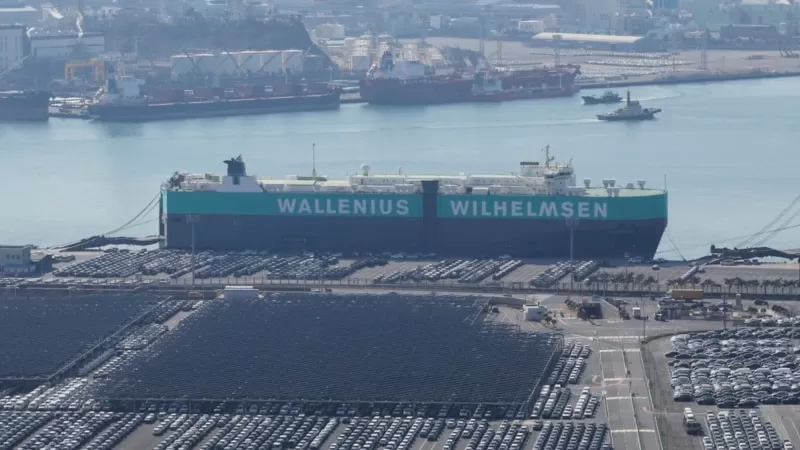SEOUL, SOUTH KOREA — The relationship between South Korea and the United States has always been one of strong economic ties and mutual benefit. However, recent developments in the U.S. trade policies have caused concern for South Korean officials. In light of the proposed aggressive tariffs on trade partners, South Korean officials have requested the Trump administration to exclude their country from these measures.
Deputy Trade Minister Park Jong-won, who was in Washington this week for meetings with officials from the White House, the Department of Commerce, and the Office of the U.S. Trade Representative, made the request on behalf of the South Korean government. While the details of the meetings have not been disclosed, it is clear that the South Korean government is taking proactive steps to protect their country’s interests.
Park emphasized the significant contributions of South Korean companies to the U.S. economy through large-scale business investments. He also highlighted the fact that South Korea is already applying low duties on American products under the free trade agreement between the two nations. This agreement, which was signed in 2007, has been beneficial for both countries, promoting trade and economic growth.
The South Korean government is concerned about the potential impact of the proposed tariffs on their economy. The state-run Korea Development Institute has already revised its growth forecast for the country’s economy for the second time since November, citing the impact of Trump’s trade policies. The institute now projects a growth rate of 1.6% for 2025, which is 0.4 percentage points lower than their previous estimate.
While the steel and aluminum tariffs may not have a significant impact on South Korea’s economy, the country is worried about the potential increase in duties for other products such as semiconductors and cars. As a trade-dependent economy, any changes in trade policies can have a significant impact on South Korea’s growth and stability.
In response to these concerns, South Korea’s acting president, Choi Sang-mok, called a meeting with trade and foreign policy officials to discuss the potential impact of Trump’s trade measures. He instructed officials to closely monitor how other major economies, including the European Union, Japan, and China, are responding to these policies and to effectively communicate South Korea’s position to U.S. officials.
It is important to note that South Korea’s trade surplus with the U.S. reached $55.7 billion in 2024. This surplus is a result of the strong trade relationship between the two countries and the low tariff rates imposed by South Korea on U.S. manufacturing imports. In fact, the average tariff rate for U.S. goods entering South Korea is around zero percent, showcasing the country’s commitment to fair and open trade.
The South Korean government’s request to be excluded from the proposed tariffs is not only in the best interest of their own economy but also in the interest of maintaining a strong and mutually beneficial relationship with the United States. As allies and trading partners, it is crucial for both countries to continue promoting free and fair trade.
In conclusion, South Korea’s request to be excluded from the proposed tariffs is a proactive and necessary step to protect their economy and maintain a strong partnership with the United States. The South Korean government’s commitment to open and fair trade is evident in their low tariff rates and their efforts to communicate their position to U.S. officials. It is our hope that the Trump administration will consider the concerns of their ally and continue to foster a positive and mutually beneficial trade relationship with South Korea.


